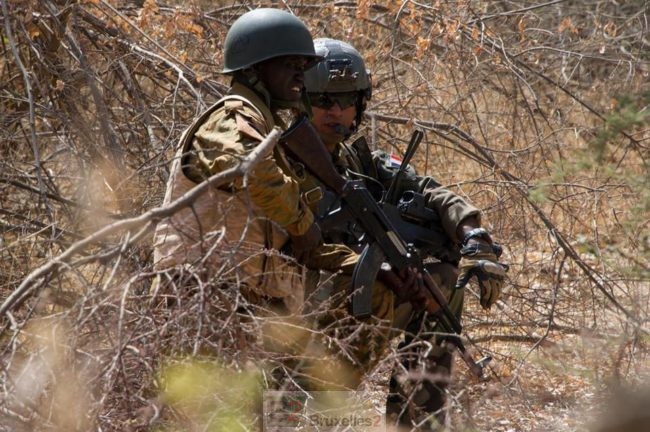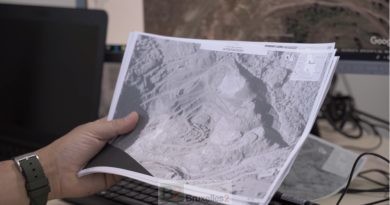Several European countries are engaged or are considering engaging in Mali (Operation Takuba)
(B2 - exclusive) The arrival of European special forces alongside the French is no longer purely prospective. It is actually progressing. B2 has had confirmation of this, coming from several sources, and not exclusively French...

Estonian participation in detail
According to information from B2 drawn from a good source, one point is already acquired: the participation of the Estonians. The Estonian parliament has given its approval for the reinforced presence in the Malian sands. 40 special forces men will be present in Gao in tandem with the French. Estonia does not have the means to operate on its own. And the advantage is that they can pool with the other troops they make available, just under 60, who will continue to work with Barkhane.
Czechs
Another expected presence: that of the Czechs. This may come as a surprise to those unfamiliar with the Czech engagement in the Sahel. But Prague is very committed to Mali. Their special forces have been present from the start, protecting the EU training mission (EUTM Mali) based in Bamako. They were able, with great professionalism, to defend against a terrorist attack at their HQ (read: EUTM Mali HQ attacked in Bamako. A new target in the Sahel: Europe) then by intervening, outside the zone, to counter a terrorist attack on the camp (Read: Europeans (and Malians) reacted well). Czech diplomacy also wants to invest in the region and has even reopened its embassy in the Malian capital.
The Nordics well present
The Norwegians and Swedes should also be present. For Sweden, it would be a real return to Africa of their special forces. Their last participation by the Swedes dates back to 2008 for the EUFOR Tchad operation. Denmark (or even the Netherlands) could also answer the call. Copenhagen has already decided to send two Merlin EH-101 transport helicopters, and adequate personnel (70 people and two staff officers).
Southern countries also
Other possible presence (unconfirmed for the moment): Spain and Portugal. The Spanish presence would be quite logical. Spain is very committed in the area, and has often defended, with France, a more 'reinforced' action by Europe in this region. Since the beginning, the air force has provided significant air logistics support from Senegal with one or more C-130s. The Spanish soldiers are also present in Koulikoro at the Malian army training center as part of the European mission EUTM Mali, ensuring its defense against terrorist attacks (read: Details of the attack on the EUTM Mali camp in Koulikoro).
Madrid have been asked, but have so far not responded expressly positively, according to our information. In question: the political situation which prevents the Sánchez government, in current affairs, from engaging in a new operation. The elections and the formation of a new coalition could perhaps unblock the subject.
Britons under staff constraint
The United Kingdom is also in the loop. London could send special forces, but they are currently taken on other grounds (Iraq, Afghanistan, Nigeria...). " We never communicate about the presence of special forces “Replied a source of Her Royal Majesty questioned by B2 who therefore did not want” neither confirm nor deny " this information. The pre-electoral political situation and the dissolution of Parliament also explain this British absence.
Belgians occupied in Niger
The Belgians, good connoisseurs of the African terrain were also called upon. But the situation of an interim government prevents a real response. This is the official version (1). In reality, Belgium is already busy. The government has given the go-ahead for the deployment of around XNUMX special forces men from the SOR (Special Operations Regiment, former para-commando regiment for connoisseurs) in Niger, in order to train a battalion of the national army, as Didier Reynders confirmed recently (read: Notebook 11.11.2019). This also contributes to the European effort to reinforce the troops of the G5 Sahel.
(Nicolas Gros-Verheyde)
- In practice, this situation does not prevent going on an operation. In 2011, the government of Yves Leterme, then in current affairs, decided to intervene by air in Libya, with the consent of its Chamber of Deputies. An assent obtained with almost total unanimity, majority and opposition combined, Greens included, as a colleague from the Belga agency, a specialist in military affairs, reminded me. Only one voice was missing (that of the Walloon populist right).

